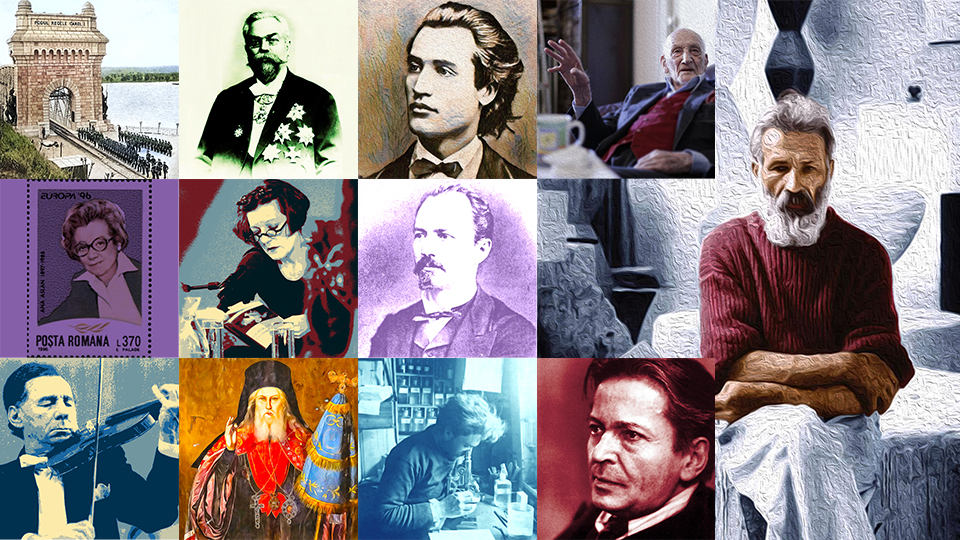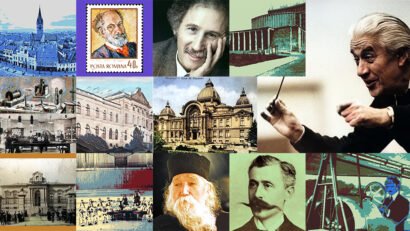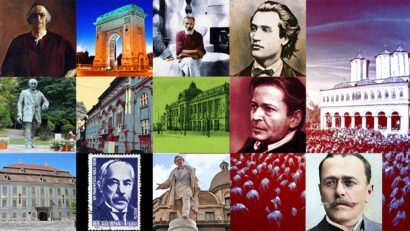N. Iorga as remembered by his contemporaries
Some people leave behind powerful memories due to their striking personalities. One such personality was the historian Nicolae Iorga.

Steliu Lambru, 25.10.2025, 12:15
Some people leave behind powerful memories due to their striking personalities. One such personality was the historian Nicolae Iorga. He was imposing due to his physical appearance, being a very tall individual with a long beard, through his work, his volcanic temperament, and his tragic end. A historian, writer, philosopher, professor, journalist, politician, Iorga did not go unnoticed in the eyes of those who met him.
He was born in 1870 in Botoșani, in north-eastern Romania, into a family of Greek descent. He studied history at the University of Iași, the École pratique des hautes études in France, and the University of Leipzig in Germany. His work comprises over 20,000 titles and consists of books, studies, brochures, speeches, and press articles, making him the most prolific Romanian author. The themes and subjects of his work are in the fields of history, literature, philosophy, and current political affairs. As a politician, he was a nationalist and leader of the Nationalist Democratic Party, which he founded in 1910, breaking away from the Conservative Party. He was a senator and deputy in the Romanian Parliament and a member of the Crown Council between 1938 and 1940. In this latter capacity, Iorga was one of those who opposed accepting the ultimatum given to Romania by the Soviet Union in June 1940 to cede Bessarabia and Northern Bukovina, and called for armed resistance.
As prime minister, he led Romania for one year and two months, from April 1931 to June 1932. On November 27, 1940, Iorga was taken from his home by a team of legionnaires, taken to a forest north of Bucharest, and shot. The Legionnaires justified their actions as revenge for Iorga’s personal involvement in the arrest and assassination of Corneliu Zelea Codreanu, leader of the fascist Iron Guard party, in 1938. Posterity named the history institute of the Romanian Academy in Bucharest after him, as well as a large number of streets, and erected busts and statues in his honour.
Historian Eliza Campus was Iorga’s student in the early 1930s. In an 1999 interview for the Oral History Center of Radio Romania she talked about her deep respect for her professor.
“At the Faculty of History, our main subject was Universal History, coordinated by our great scholar Nicolae Iorga. From the very beginning, I had a very cordial relationship with him. Seeing me in mourning, as my father had died, he asked me from the first classes if I needed help, if he could give me lessons to keep or to give me other opportunities to earn money. However, I had just started working as a teacher at a school, so I had an income. From then on, he had a very close relationship with me. He always invited me to his home to study various works from his library, and we remained close until I graduated his class. After I got my degree in 1931-1932, I regularly attended his classes as if I were still his student. I also visited his home countless times. I remember that while I was writing my thesis, I was at his home and he had given me some works to consult. He got a phone call, and I heard him say, “No, Sire, I can’t come now, I have students here.” It was King Carol II who had summoned him to the Palace, and he refused to go because he had students. That was Iorga, independent, proud, and full of the desire to bring young people closer and to turn them, his students, into true historians.”
Engineer Paul Știubei worked at the Romanian Radio Broadcasting Corporation from its inception in the 1930s. In 1994, he recalled that Iorga had also appeared in front of the radio microphone.
“He had a script and spoke freely. But I always listened to him at his public conferences, where he would deviate from the script and start digressing. Not directly, but with subtle hints. I know that once the general manager, Nicolae Sărățeanu, came and asked me to let him keep his hand on the microphone’s mute button. He stood with his hand on the button, afraid that Iorga would say something against the Germans. It was a time when the Germans had come to the country and we were Germanophiles.”
During the years of decline of Romanian democracy, a process that began in 1938, Iorga was a member of the National Renaissance Front, the totalitarian single party of King Carol II. Literary historian Gabriel Țepelea, a member of the National Peasant Party, does not have fond memories of Iorga from that time.
“I can still see Iorga today, with his patriarchal beard, dressed in a blue uniform as a royal advisor, a member of the Renaissance Front! In other words, a group of people of immense cultural stature proved that, politically speaking, they were unable to veto the ambitions of the king, in this case, and their own personal ambitions. And they went along with it.”
Memories of a person vary from one memoirist to another. And Iorga is no exception. (MI)





























